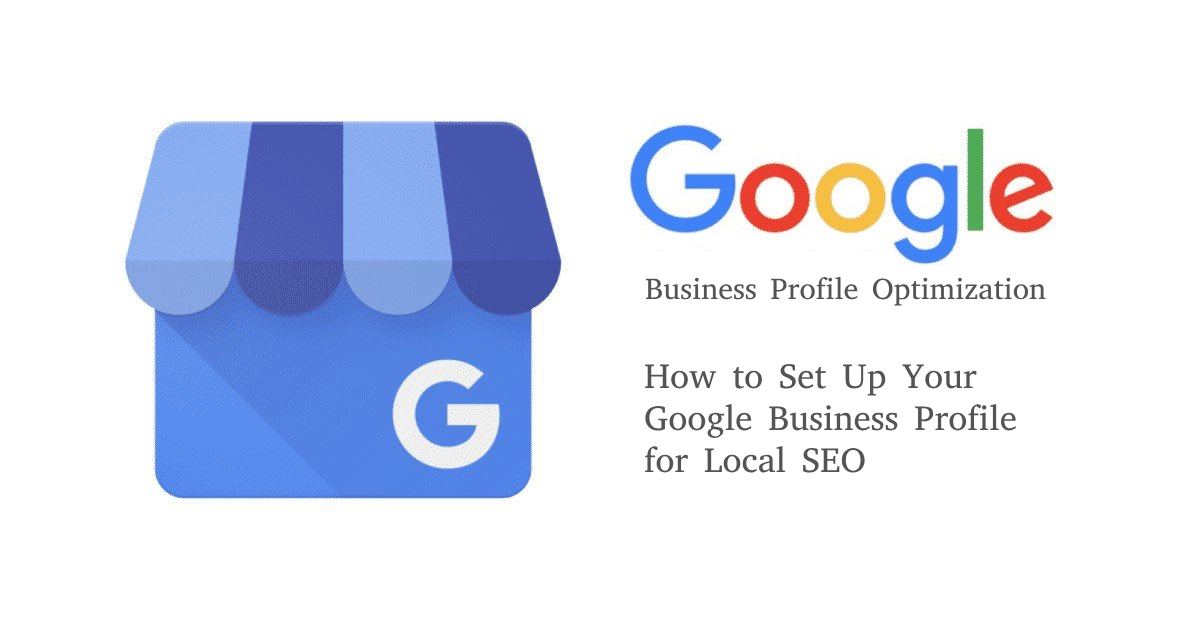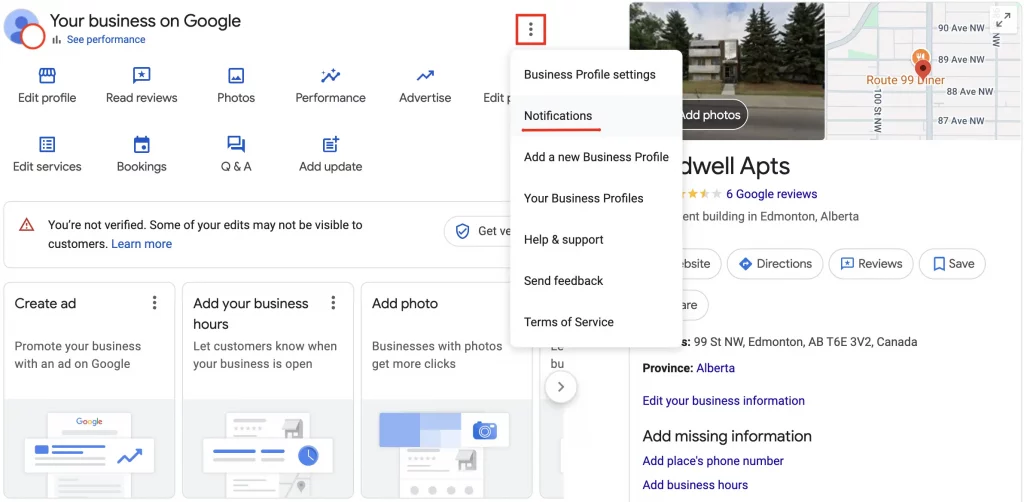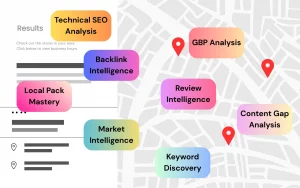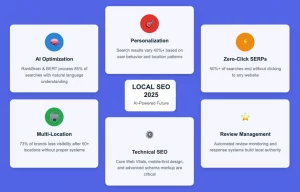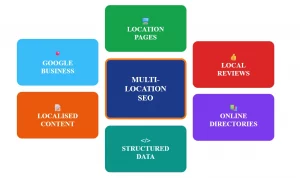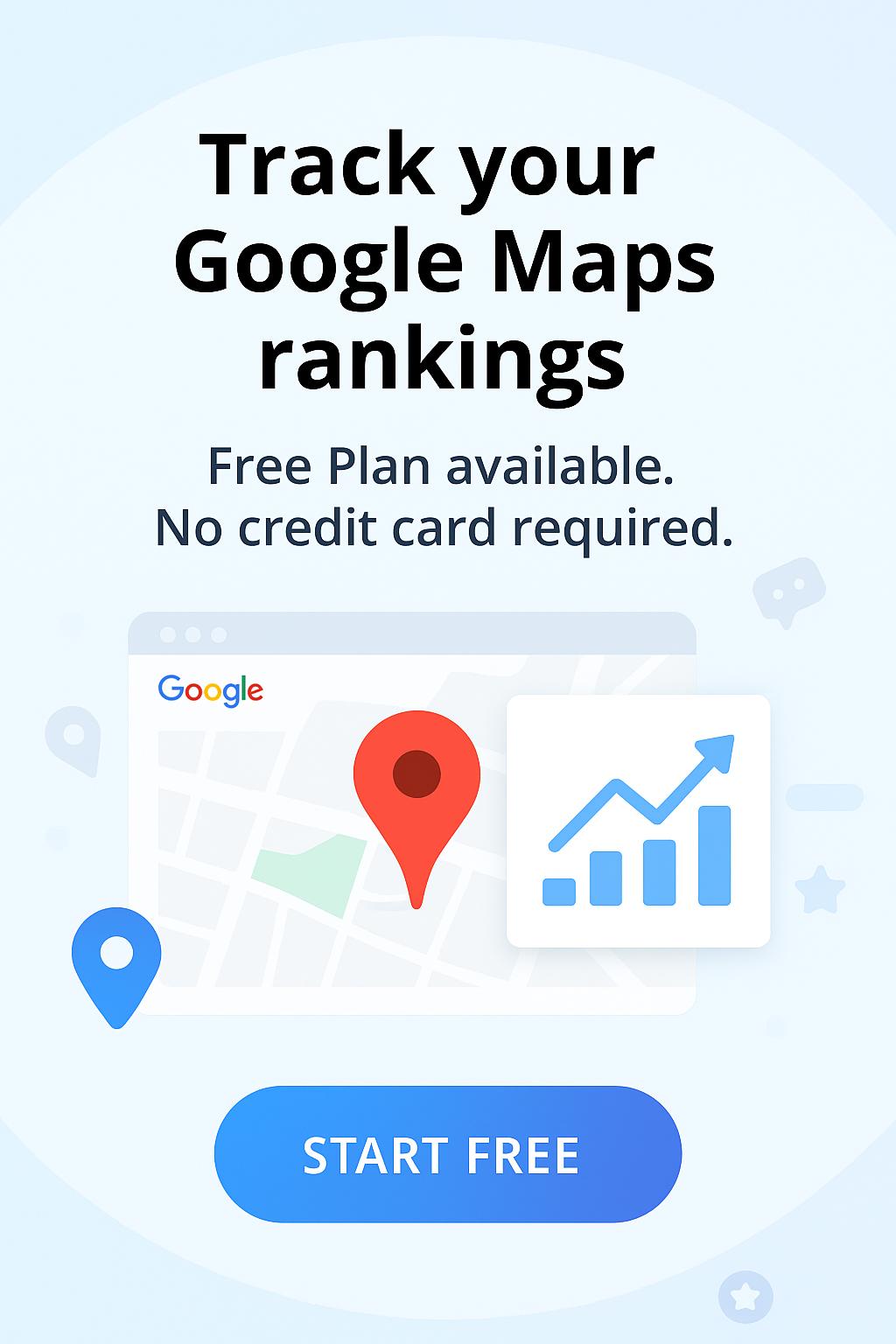Your Google Business Profile (GBP) is your digital storefront; it’s how local customers find you, trust you, and choose you. In this guide, we’ll walk you through the exact steps to set up and claim your profile properly so you can show up where it matters most: in Google Search and Maps.
Having a complete and optimized Google Business Profile isn’t just a nice-to-have; it’s essential for standing out in local searches and Google Maps results. Whether you run a restaurant, retail store, service business, or professional practice, your profile is often the first impression customers get of your brand online. It shows them who you are, what you offer, and why they should choose you over competitors.
An accurate and verified profile not only improves your visibility but also builds credibility and trust with potential customers. Plus, features like customer reviews, photos, and posts give you powerful tools to engage your audience and encourage them to visit, call, or book your services.
Ready to take control of how your business appears on Google? Let’s get started with the key steps you need to follow to set up, verify, and manage your Google Business Profile like a pro.
Before You Begin Creating Your Google Business Profile: Essential Pre-Setup Checklist
Before you create your Google Business Profile (GBP), it’s critical to build a solid foundation that helps Google trust your business faster and improves your chances of passing verification on the first try. Here’s what we strongly recommend you do before setting up your GBP:
Create a Business Website
-
Build a professional website on your own domain (e.g., www.yourbusiness.com).
-
Make sure the website name matches exactly the business name you’ll use on your GBP for consistency and credibility.
Connect to Google Search Console
-
Verify your website with Google Search Console using your official business Google account.
-
A verified site tells Google you are the legitimate owner of the online presence tied to your business name.
Set Up a Verified Google Ads Account
-
Create and verify a Google Ads account.
-
Even if you don’t plan to run ads immediately, a verified account adds credibility and unlocks additional support options with Google.
-
Having a verified Google Ads account, together with a website connected to Search Console, can often help your Google Business Profile verification get approved faster or even instantly. However, if Google still needs more proof, you may be required to complete video verification.
Prepare for Verification
-
You must verify your business to edit your info on Google and interact with customers.
-
To start, sign in with an existing Google Account or create a new one (you can link your company email to make management easier).
-
Google will determine your available verification methods automatically, which may include:
-
Video recording (most common today)
-
Phone call or text
-
Email
-
Live video call
-
Postcard by mail
-
-
After submitting verification, Google reviews your info, which can take up to 5 business days. Some businesses are verified instantly if their website is already connected to Search Console. Once verified, you’ll get a confirmation email and can add team members to help manage your profile.
Prepare for Video Verification
-
Most businesses now verify through video recording, which must be done directly from your GBP on a mobile device (you can’t upload a pre-recorded video).
-
Your video should:
-
Be unedited, at least 30 seconds, and uploaded in one go.
-
Show your business location, like street signs or nearby landmarks.
-
Show proof that your business exists, such as permanent signage or a branded vehicle matching your business name.
-
Show proof of management, like accessing employee-only areas or showing documents (licenses, utility bills) with your business name.
-
-
Google will review your video and notify you within 5 business days. If it doesn’t meet requirements, they’ll explain what to fix so you can re-record and submit again.
Contact Google Support If Needed
-
If you have verification issues, contact Google Business Profile Support:
-
Go to Google Business Profile Help, click Contact Us, and follow the prompts for chat, email, or phone assistance.
-
Google may request additional documents like utility bills or photos to verify ownership.
-
Check Consistency Across the Web
-
Ensure your business name, address, and phone number (NAP) are consistent across your website and major directories (like Yelp, Facebook, Apple Maps).
-
Inconsistent information can cause verification delays or rejection.
By completing these steps before you begin creating your Google Business Profile, you’ll improve your chances of quick approval, avoid duplicate listings, and set your business up for success in Google Search and Maps.
Set Up Your Google Business Profile
Before you can optimize your Google Business Profile for local SEO, you need to ensure it's properly set up and claimed. This foundational step helps Google, and your customers understand exactly who you are, what you offer, and where you operate.
In this section, we’ll guide you through the setup process from start to finish. Whether you're creating a brand-new listing or claiming one that already exists, the goal is the same: to take full control of your business's online presence.
Setting up your profile correctly from the beginning helps you:
-
Prevent duplicate listings that could confuse customers
-
Avoid SEO penalties from unclaimed or outdated profiles
-
Ensure your business appears in the right search results and map listings
-
Unlock important features like reviews, messaging, Google Posts, and analytics
Once your profile is set up, don’t forget to optimize it for local SEO to improve your chances of ranking higher in Google Maps and local search results.
Why Your Google Business Profile Matters
Your Google Business Profile is more than just a listing, it's your first impression in local search.
How GBP Impacts Your Local Visibility
If you run a local business, your online visibility on Google can make or break your success. The first impression most customers have of your brand is often from Google Search or Google Maps. That’s why setting up and optimizing your Google Business Profile (GBP) is one of the most powerful free marketing steps you can take.
With GBP, you gain control over how your business is displayed on Google, which affects:
- Search visibility
- Customer engagement
- Trustworthiness
- Lead generation
Google shows local business profiles before websites. If you're not listed or verified, you're invisible to many of your potential customers.
Step 1: Check If You Already Have a Google Business Profile
Before you create a new profile, make sure one doesn’t already exist. Sometimes, a profile is created by a customer, a past employee, or even auto-generated from online listings.
How to check for an existing profile:
- Search your business name + city on Google. Look on the right-hand side for a panel, this is called the Knowledge Panel. If you see it, that means there is already a profile associated with that name.
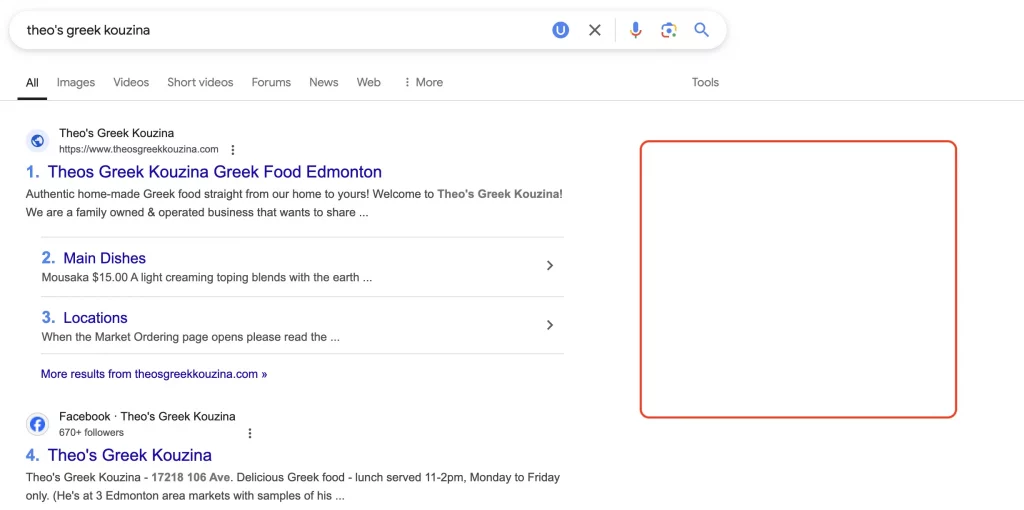
- Search in Google Maps as well. Try different combinations like:
- Business Name + City
- Business Phone Number
- Physical Address
- Website URL
If you’ve ever used a different name or moved, try older business data too. Google may have kept that history.
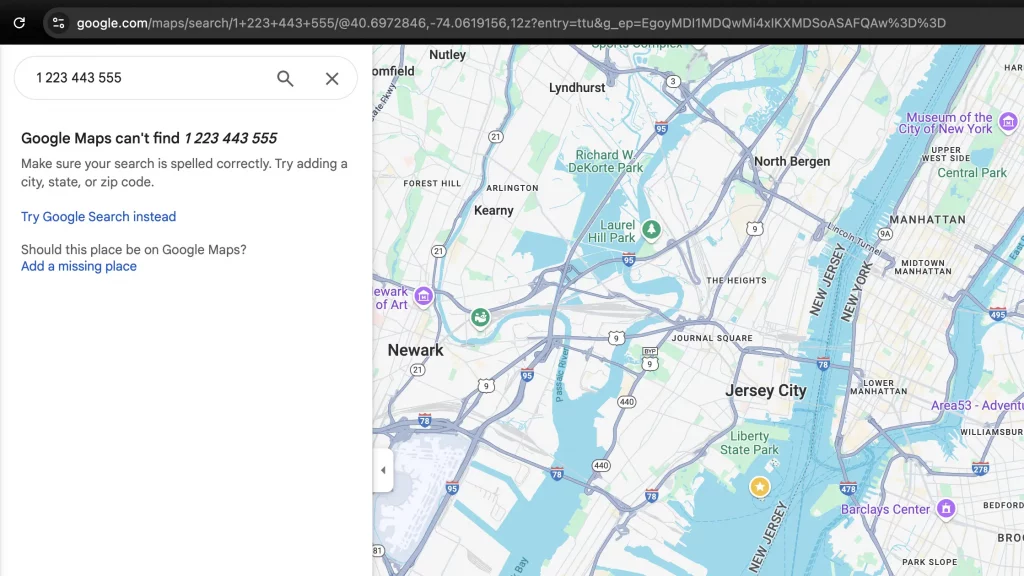
What If No Profile Exists?
If no profile comes up after thorough searching, go to Google Business Profile Manager and start typing your business name. If nothing matches, click “Create a business with this name.”
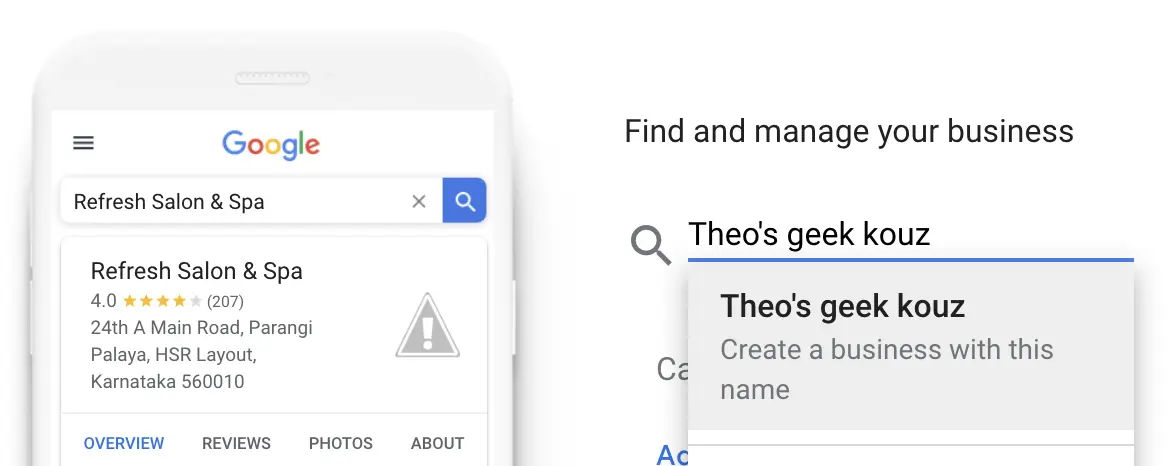
⚠️ Warning: Accidentally creating a duplicate profile can lead to confusion, SEO problems, and even suspension. Always search thoroughly before creating a new one.
Step 2: Creating Your Google Business Profile
Setting up your profile from scratch is simple, but it’s important to enter accurate details right from the start. This helps Google show your business to the right people at the right time. Whether you have a physical storefront or offer services in specific areas, this step ensures your customers can find and contact you easily.
How to Add Your Business to Google
If it’s confirmed that your business has no existing profile, it’s time to create one.
- Go to https://www.google.com/business
- Log in with your Google account (ideally one connected to your business)
- Click “Add your business to Google.”
- Enter your:
- Business name
- Business category
- Location and service areas
- Contact information (NAP: Name, Address, Phone)
- Choose how your business will appear on Maps, storefront or service area
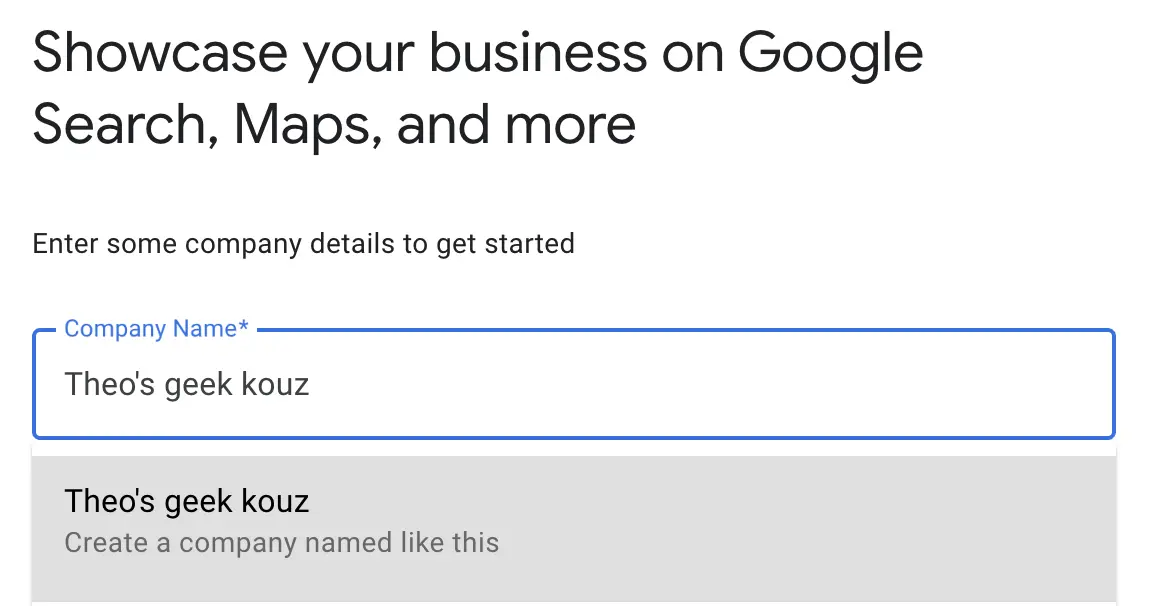
Step 3: Verifying Your Business
Once you enter your details, Google will need to verify that you're the real owner of the business. This protects against spam and impersonation.
Common verification methods include:
- Postcard by mail (default for most storefronts)
- Phone or text message
- Video verification (live or recorded)
- Search Console instant verification
Example: A mobile mechanic may verify via a live video call with a Google rep, showing their vehicle branding and business documents.
Not all verification methods are available to every business. Google will suggest options based on your category and location. Sometimes multiple methods are required.
Step 4: Claiming an Existing Google Business Profile
If you find that your business already has a profile on Google but you’re not the one managing it, you’ll need to claim ownership. Claiming your profile unlocks powerful tools like Google Posts, direct bookings, and messaging features that can boost your visibility and engagement when used strategically.
How to Claim an Existing Profile
-
On Google Search or Maps, click “Own this business?”
-
Follow the steps to request ownership
-
If no one has claimed the profile, you’ll be granted access immediately
-
If it’s already verified, you’ll need to submit an ownership request
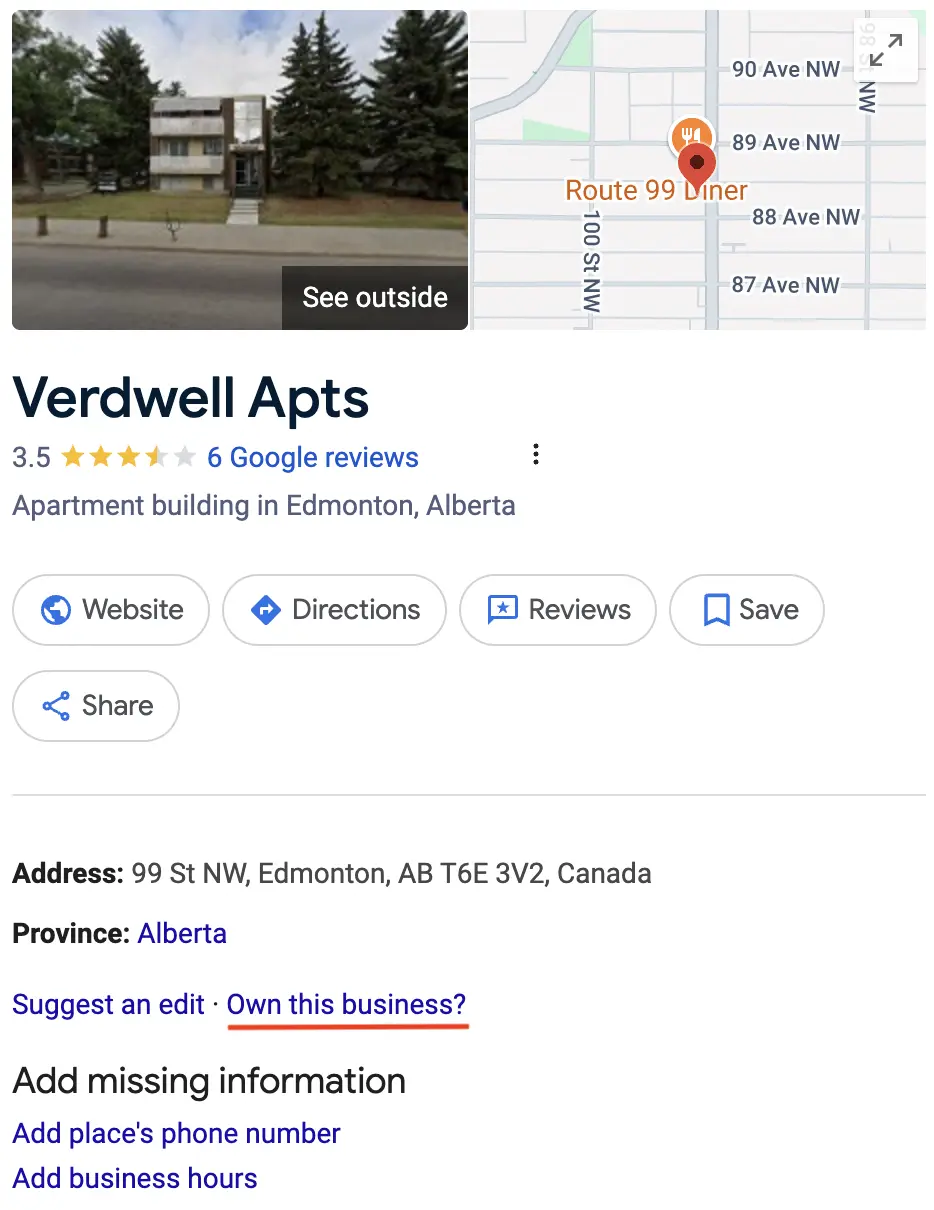
Why Claiming Your Profile Is Critical
Even if someone else created the listing, like a customer, former employee, or third-party site, you are ultimately responsible for keeping the information accurate.
Risks of Leaving a Profile Unclaimed
-
Outdated or incorrect business hours
-
No ability to respond to customer reviews
-
Missing updates and promotional posts
-
Public edits can be made without your approval
What You Gain by Claiming Your Profile
Once you verify ownership, you unlock powerful tools to manage your online presence.
Key Features Include:
-
Google Posts – share updates and promotions
-
Direct Bookings – allow users to schedule appointments
-
Messaging – respond to inquiries in real time
-
Product/Service Listings – showcase your offerings
-
Review & Q&A Management – build trust and engage with customers
Step 5: If Someone Else Owns It, Request Ownership
It’s not uncommon to discover that someone else has already claimed your Google Business Profile, this could be a former employee, marketing agency, or even an automatic claim by someone unaffiliated. Thankfully, Google allows you to request access to take back control.
Before moving forward, ensure you have access to any supporting documentation (like utility bills or business licenses) in case Google requires verification during the appeal process. If you’ve experienced account issues or a sudden suspension, check out our guide to fixing and preventing profile suspensions so you can resolve them quickly and avoid losing control of your listing.
How to Submit an Ownership Request
If the profile is already verified by someone else, you’ll need to submit a request to take control of it.
-
Click “Request access” on the business listing
-
Fill out the form with your details and relationship to the business
-
Wait for a confirmation email from Google
-
The current profile owner has 3 days to respond
-
If they don’t respond, you may be given the option to verify the business yourself
-
If your request is denied, you can appeal the decision. Google may ask for additional verification (e.g., utility bills or legal documents)
💡 Pro Tip: Sometimes Google will show part of the current owner’s email (e.g., x*****@gmail.com). If you recognize it, try contacting them directly to speed things up.
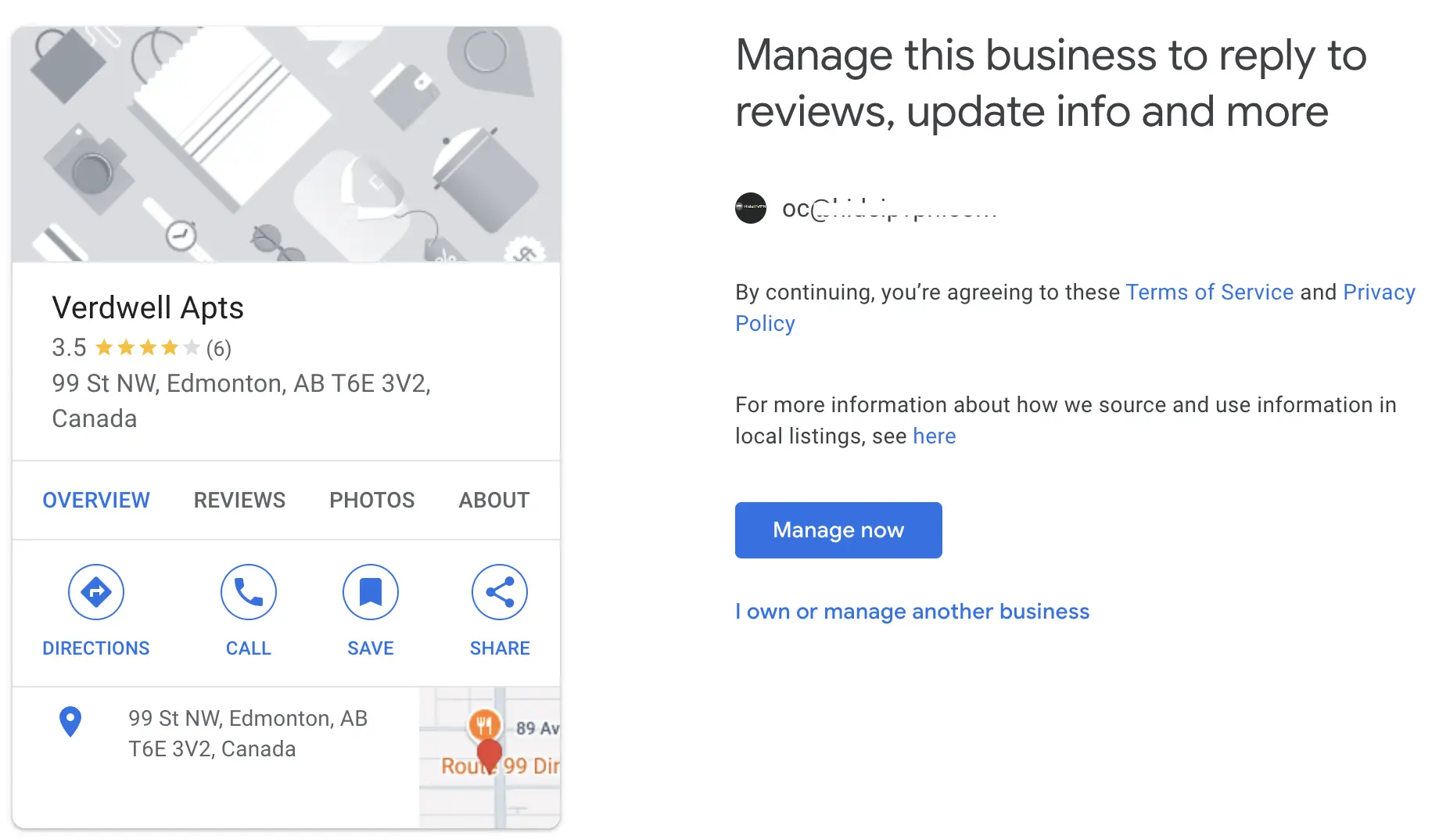
Step 6: Watch Out for Public Edits
Your Google Business Profile is not entirely under your control, anyone can click “Suggest an edit” on your listing. If Google finds the suggested change credible (based on user history, data, or trust signals), it may apply the edit automatically, even without notifying you.
What Can Be Publicly Edited
People can suggest changes to:
-
Business category
-
Hours of operation
-
Address or phone number
-
Business status (e.g., “Permanently closed”)
These changes can impact how your business appears in search and maps, sometimes without your knowledge.
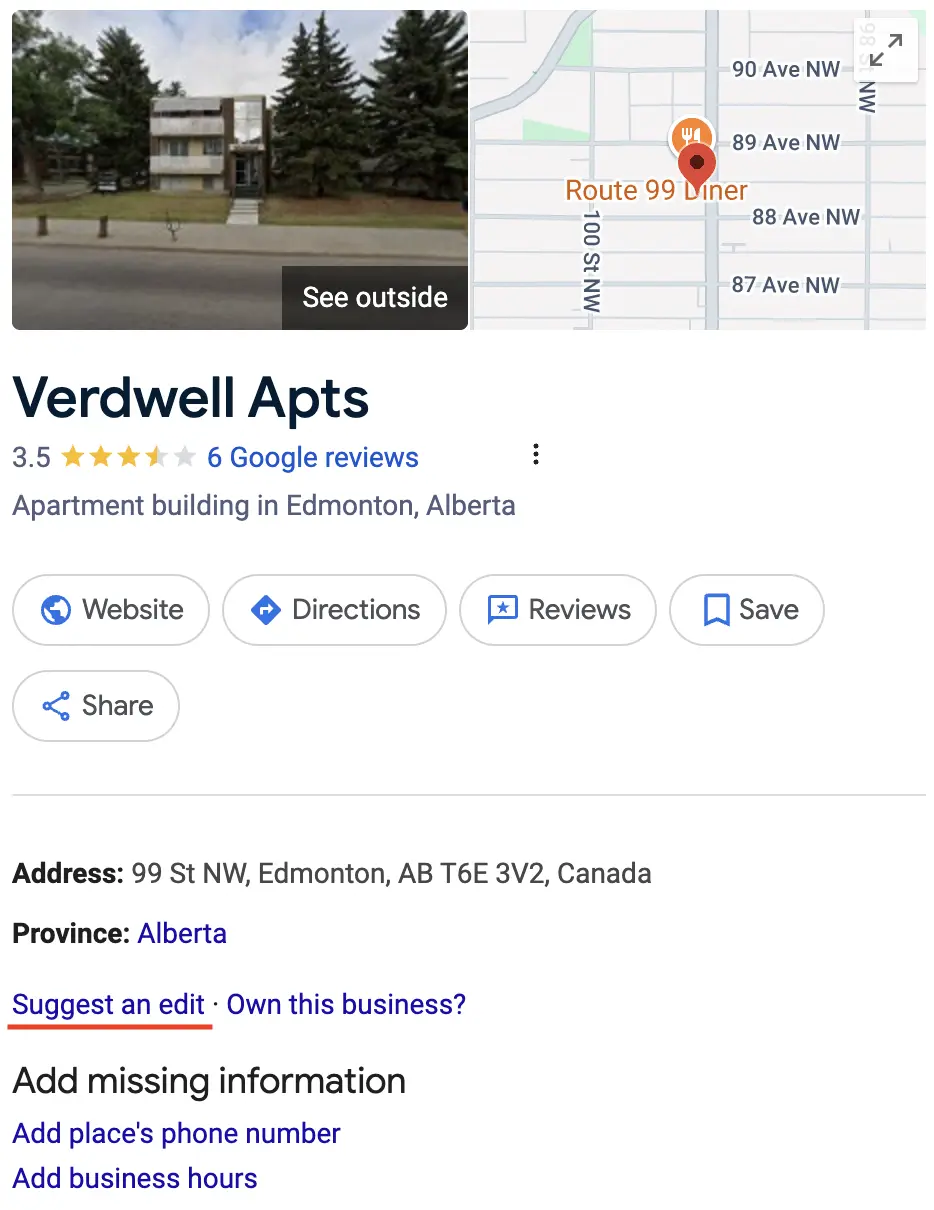
How to Stay Protected
To reduce the risk of unwanted or inaccurate updates, follow these steps:
✅ Best Practices
-
Set your notification preferences to receive alerts
-
Check your profile weekly for changes
-
Use your profile actively: post updates, respond to reviews, and engage regularly
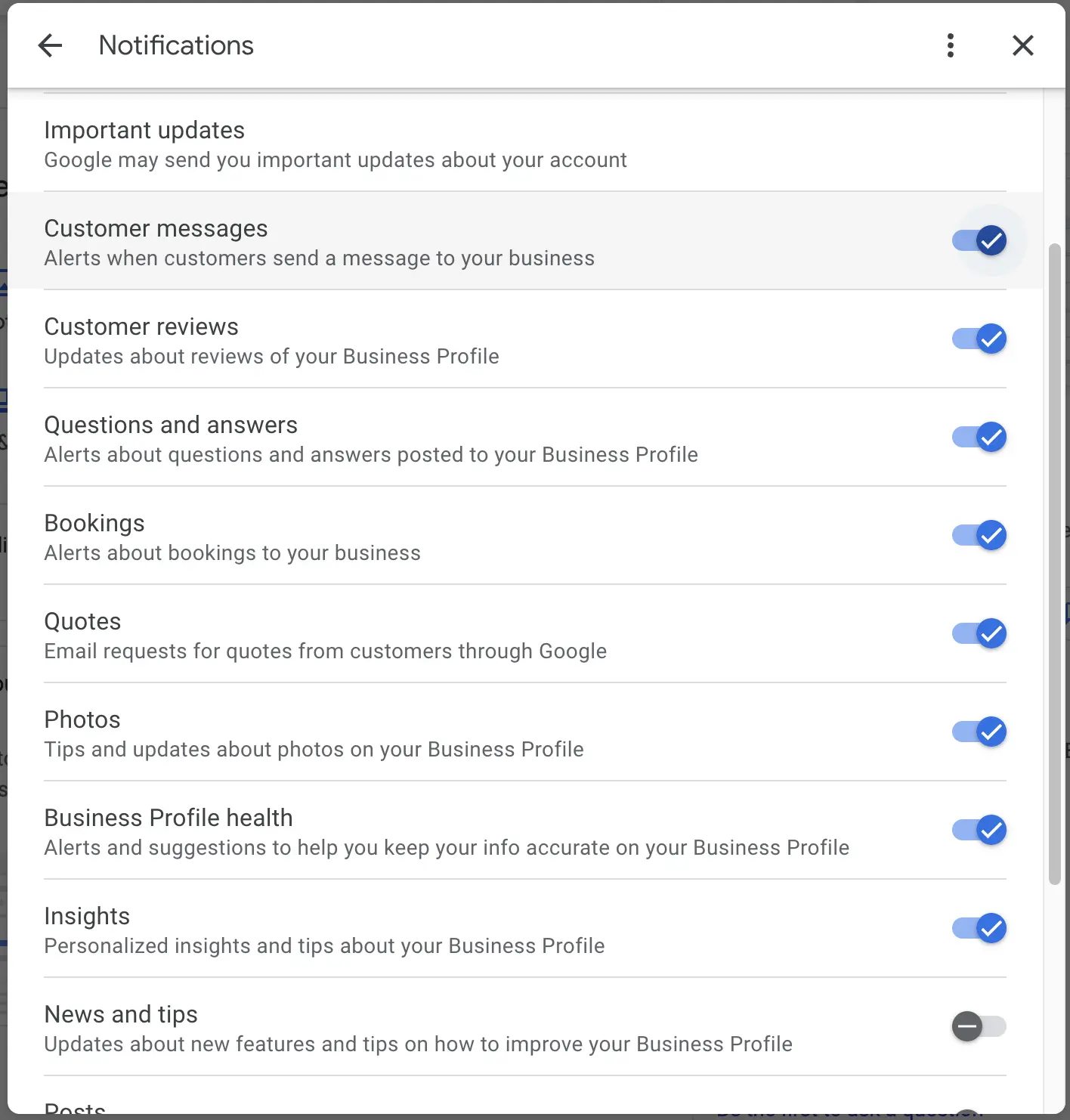
How to Update Notification Settings
-
Open Google Business Profile Manager
-
Click the three-dot menu (⋮) in the top right
-
Select “Notifications.”
-
Enable alerts for edits, reviews, messages, and updates
Note: Not all public edits will trigger a notification. That’s why it’s essential to log in regularly and monitor your listing manually.
FAQ: Set Up Your Google Business Profile
1. How do I know if my business already has a Google Business Profile?
Search your business name plus your city on Google and Google Maps. Look for a panel on the right (Knowledge Panel) that shows business details. You can also search by phone number, address, or website. If something shows up, that means a profile exists.
2. What happens if I accidentally create a duplicate profile?
Duplicate profiles can lead to confusion, SEO issues, and even suspension. That’s why it’s essential to search thoroughly before creating a new profile. If duplicates already exist, you can request to merge or remove them via Google Support.
3. Can I skip verification and still show up on Google Maps?
No. Google requires verification to confirm you're the real business owner. This is a necessary step to publish your profile and unlock features like review responses, messaging, and Google Posts.
4. What if someone else owns the profile for my business?
You can request ownership by clicking “Own this business?” on the listing. If no one responds within 3 days, Google may offer you verification options. If it’s denied, you can appeal by providing proof like utility bills, business licenses, or storefront photos.
5. What is a “service area” business, and how is it different from a storefront?
A storefront business has a physical location that customers can visit. A service area business (like plumbers or mobile repair services) travels to customers and doesn’t need to show an address. Google gives you the option to hide your address and specify a service area.
6. Can anyone make changes to my Google Business Profile?
Yes. The “Suggest an edit” feature allows the public to propose changes, which Google may apply automatically. To protect your listing, enable notifications and check your profile weekly.
